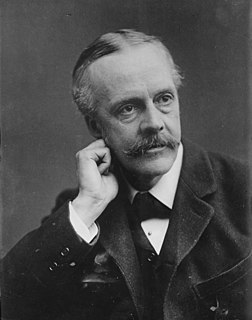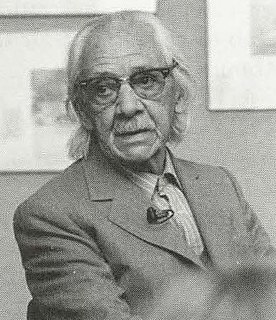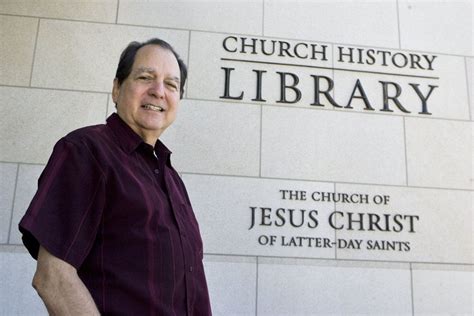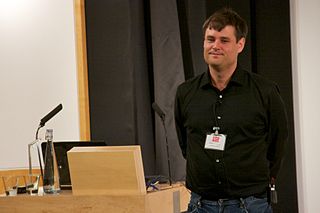Top 1200 Philosophy Of Science Quotes & Sayings - Page 9
Explore popular Philosophy Of Science quotes.
Last updated on November 15, 2024.
If we consider what science already has enabled men to know-the immensity of space, the fantastic philosophy of the stars, the infinite smallness of the composition of atoms, the macrocosm whereby we succeed only in creating outlines and translating a measure into numbers without our minds being able to form any concrete idea of it-we remain astounded by the enormous machinery of the universe.
The values of science and the values of democracy are concordant, in many cases indistinguishable. Science and democracy began - in their civilized incarnations - in the same time and place, Greece in the seventh and sixth centuries B.C. . . . Science thrives on, indeed requires, the free exchange of ideas; its values are antithetical to secrecy. Science holds to no special vantage points or privileged positions. Both science and democracy encourage unconventional opinions and vigorous debate. Both demand adequate reason, coherent argument, rigorous standards of evidence and honesty.
Freud expressed the opinion-not quite in earnest, though, it seeemed to me-that philosophy was the most decent form of sublimation of repressed sexuality, nothing more. In response I put the question, 'What then is science, particularly psychoanalytic psychology?' Whereup on he, visible a bit surprised, answered evasively: 'At least psychology has a social purpose.'
The issues involved are sufficiently important that courses are now moving out of the philosophy departments and into mainstream computer science. And they affect everyone. Many of the students attracted to these courses are not technology majors, and many of the topics we discuss relate to ethical challenges that transcend the computer world.
Just to the extent that the Bible was appealed to in matters of science, science was retarded; and just to the extent that science has been appealed to in matters of religion, religion has advanced - so that now the object of intelligent religionists is to adopt a creed that will bear the test and criticism of science.
The progress of science is tremendously disorderly, and the motivations that lead to this progress are tremendously varied, and the reasons why scientists go into science, the personal motivations, are tremendously varied. I have said ... that science is a haven for freaks, that people go into science because they are misfits, and that it is a sheltered place where they can spin their own yarn and have recognition, be tolerated and happy, and have approval for it.
Economics is a theoretical science and as such abstains from any judgement of value. It is not its task to tell people what ends they should aim at. It is a science of the means to be applied for attainment of ends chosen, not, to be sure, a science of the choosing of ends. Ultimate decisions, the valuations and the choosing of ends, are beyond the scope of any science. Science never tells a man how he should act; it merely shows how a man must act if he wants to attain definite ends.
A great swindle of our time is the assumption that science has made religion obsolete. All science has damaged is the story of Adam and Eve and the story of Jonah and the Whale. Everything else holds up pretty well, particularly lessons about fairness and gentleness. People who find those lessons irrelevant in the twentieth century are simply using science as an excuse for greed and harshness. Science has nothing to do with it, friends.
This example illustrates the differences in the effects which may be produced by research in pure or applied science. A research on the lines of applied science would doubtless have led to improvement and development of the older methods - the research in pure science has given us an entirely new and much more powerful method. In fact, research in applied science leads to reforms, research in pure science leads to revolutions, and revolutions, whether political or industrial, are exceedingly profitable things if you are on the winning side.
Why can't we simply borrow what is useful to us from Buddhism, Hinduism, Taoism, especially Zen, as we borrow from Christianity, science, American Indian traditions and world literature in general, including philosophy, and let the rest go hang? Borrow what we need but rely principally upon our own senses, common sense and daily living experience.
Being a philosophical naturalist does not mean that one thinks that science can provide all of the answers. That is scientism and that is wrong. I don't think a billion buckets of science could speak to the problems raised by the Tea Party. Being a philosophical naturalist does not mean that one thinks that the only truths are those of science. I think the claim just made in the last sentence is true but I don't think it is a claim of science. It means that you use science where you can and you respect and try to emulate its standards.
I don't believe there's anything in life you can't go back and fix. The ancient Vedas - the oldest Hindu philosophy - and modern science agree that time is an illusion. If that's true, there's no such thing as a past or a future - it's all one huge now. So what you fix now affects the past and the future.
All the sciences have a relation, greater or less, to human nature; and...however wide any of them may seem to run from it, they still return back by one passage or another. Even Mathematics, Natural Philosophy, and Natural Religion, are in some measure dependent on the science of MAN; since they lie under the cognizance of men, and are judged of by their powers and faculties.
The problem, once again, as in all sciences is the attitude of the mind that is dealing with whatever field. The problem is not philosophy but the lack of intellectual humility. It is when reason becomes arrogant that we lose track. But intellectual humility with science: this is spirituality - this is the way we are with God. So we should not be scared and we must reconcile ourselves.
It is impossible to decide whether a particular detail of the Pythagorean universe was the work of the master, or filled in by a pupil a remark which equally applies to Leonardo or Michelangelo . But there can be no doubt that the basic features were conceived by a single mind; that Pythagoras of Samos was both the founder of a new religious philosophy, and the founder of Science, as the word is understood today.
My idea of philosophy is that if it is not relevant to human problems, if it does not tell us how we can go about eradicating some of the misery in this world, then it is not worth the name of philosophy. I think Socrates made a very profound statement when he asserted that the raison d'etre of philosophy is to teach us proper living. In this day and age 'proper living' means liberation from the urgent problems of poverty, economic necessity and indoctrination, mental oppression.
When a bachelor of philosophy from the Antilles refuses to apply for certification as a teacher on the grounds of his color I say that philosophy has never saved anyone. When someone else strives and strains to prove to me that black men are as intelligent as white men I say that intelligence has never saved anyone: and that is true, for, if philosophy and intelligence are invoked to proclaim the equality of men, they have also been employed to justify the extermination of men.
The Genealogical Science is a wonderful account of how old-fashioned race science has come to be re-defined by resort to the most recent developments in genetics. But this book is not simply another story of the ideological uses to which science may be put. Nadia Abu El-Haj has provided the reader with a very detailed analysis of the historical entanglement between science and politics. Her study should be required reading for anyone interested in the sociology of science-and also for those dealing with Middle Eastern nationalisms. This is a work of outstanding value for scholarship.

























































